- Home
- H A CULLEY
Caging the Lyon Page 11
Caging the Lyon Read online
Page 11
~#~
Robert of Locksley and Marianne had lived together without the blessing of a priest for a while but when she found out that she was pregnant Marianne insisted on getting married. In the end Robert had resorted to the simple expedient of kidnapping a village priest and bringing him to a nearby clearing on a bright summer’s day wearing a blindfold. They were married just five months before their son was born. ‘I wish all my pregnancies could be so short,’ the wife of one of Robert’s men commented to general laughter.
They decided to call him Miles after Robert’s grandfather and by 1174, when he was eleven, he was as adept as any other member of Robert’s band at ambushing travellers. The problem was that the road through Sherwood had now gained a bad reputation and few braved it except for local people, lords and prelates with a sizeable escort. The new sheriff, William FitzRanulph, was a lot more energetic and had expended time and effort on patrols to locate Robert’s base.
‘He’s managed to find and eradicate practically every other band of outlaws in the two counties, except ours.’ A worried Robert told Marianne and his son one night.
‘No-one has found us here in twelve years.’ Marianne reminded him.
‘Our luck won’t hold forever,’ her husband replied gloomily.
‘Well, I don’t want to move from here,’ Miles piped up defiantly.
‘We don’t always get what we want, Miles,’ his father told him. ‘If we stay here and we are found we will either all die fighting or we will hang in Nottingham. Do you want to see you parents and friends dancing at the end of a rope?’
‘No, of course not, father.’
‘Then we need to plan a move. The question is: where to?’
‘What about the lord who gave you Hathersage before both of you were dispossessed by the king? Didn’t he make a new home for himself in Scotland?’
‘Guy FitzRichard? Yes, and he has done well for himself from what I have heard. He’s a sheriff now.’ He said ironically.
‘Might he give you a manor up there?’ Marianne wanted to know.
Robert shrugged. ‘I have no idea but it sounds like our best bet. He was always well disposed towards me. Yes.’ He made up his mind. ‘Tomorrow we’ll see who else wants to come with us.’
In the end nearly thirty of the archers and five men trained as men-at-arms elected to accompany him. With their families the cavalcade numbered over fifty. Only essentials such as the treasure chests, weapons, tents and spare clothes were taken on pack horses. Robert wanted travel to fast on the less frequented tracks so he ruled that the carts were to be left behind. All his men were competent horsemen and many of the women could also ride. The few who couldn’t and the younger children rode pillion.
After a tearful goodbye to Beorn and the twenty or so who had elected to remain behind and take their chances, the long column set out through the forest. Robert was dressed as a knight and Miles as his squire. The mounted men-at-arms also wore armour and helmets whilst the archers wore padded gambesons and helmets. Those they did meet on the road gave such a large group of armed men a wide berth. They had brought some provisions and bought what they needed to supplement this from small villages, avoiding the towns. In this way they reached County Durham without incident, but then their luck changed.
~#~
Outside the tower Richard looked on in dismay as the Elwoods returned. Luckily they didn’t have the dogs with them. They must have been borrowed from elsewhere and had now been returned. He wondered whether Jocelyn and the others had made it safely back across the border at Carter Bar. The lack of any prisoners was a good sign, as was the fact that the Scots seemed to be in a foul mood.
As soon as the door closed behind them Richard went round to the back of the tower and looked up to see if he could see any sign of Warren. For a moment he thought about trying to climb in through the window that Warren had used but he was much heavier than his squire and not used to climbing.
Just at that moment a head appeared over the parapet. At first he thought it was the sentry and shrank back into the shadows. After a moment the moon came out from behind a cloud, giving enough light for Richard to be fairly certain that the outline of the head was Warren’s. Then the end of a rope snaked down and stopped ten feet from the ground. A girl began climbing down hand over hand with her legs wrapped around the rope. His heart leapt; it could only be Claire. When her legs reached the end of the rope she gave a little cry.
‘Don’t worry Claire, just let go and I’ll catch you’.
Claire climbed down until she was hanging onto the end of the rope with her hands then let go. Richard caught her but then lost his footing and they both tumbled to the ground.
‘Are you alright, my love,’ he whispered anxiously. In reply she kissed him passionately and he responded long and hard. In their relief they completely forgot about Warren until an urgent whisper asked them somewhat abruptly to get out of the way so he could let go of the rope and drop to the ground.
Richard grasped his squire’s shoulder and, after thanking him, asked where he got the rope from and what had happened to the sentry.
‘Well, we checked the rooms above the one I went into on our way back up the stairs and found a rope ladder in one of the rooms. It was far too short so I slit it apart with my dagger and tied the two side ropes together.’
It was probably used to get in and out of the tower’s first floor door if the outside wooden stairs were destroyed in time of attack.
‘But what about the sentry?’
‘There was a trap door at the top of the stairs so I cautiously opened it. The sentry was leaning over the parapet calling down to someone outside the tower.’
‘Yes,’ Richard nodded ‘that was the lad who led the horses away.’
‘Well I stole up behind him whilst he was talking and, waiting till he started to straighten up, I put my arm around his neck and pushed the tip of my dagger up into his head behind his jaw. It was long enough to penetrate his brain and he slumped to the ground.’
‘We waited until the lad with the horses had disappeared and the rest you know.’ Claire added. Richard was amazed that she didn’t seem to be affected by the killing of the sentry or the trauma of her abduction and imprisonment, but then she flung herself into his arms again and sobbed uncontrollably.
As soon as Claire had recovered sufficiently, the trio crept away from the tower and, after making one or two wrong turns in the darkness, eventually made it back to Keilder without further incident. Richard had expected to find Turstin and the others had already made it but only the two squires who had stayed with the horses were there to greet him. His euphoria at recovering Claire safely evaporated and he now began to worry about Jocelyn and the rest of his men. His concern deepened when they reached Otterburn Castle to find that they had heard nothing since he had left three days ago. He immediately rode up Redesdale to Carter Bar with a strong escort but there was no sign of them. He briefly considered riding into Scotland in search of them but he realised that would probably result in the loss of more of his men and could start a minor border war, which King Henry would not thank him for. In any case Wauchope Forest at the head of Liddesdale lay before him and looking for four people in there would be as pointless as searching for a bodkin in a thatched roof.
He didn’t find out what had befallen Jocelyn until two months later.
~#~
Robert of Locksley and his followers hadn’t encounter any problems until they reached County Durham. He had taken the precaution of sending out two riders to act as scouts and warn of any approaching parties of armed men. Just after they had joined the main road north near Consett the two scouts came haring back towards him.
‘There is a group of knights and serjeants coming towards us,’ one of them told him breathlessly. Robert cursed; perhaps they should have stayed on the minor tracks a bit longer.
‘How many and how long before they get here?’ Robert asked whilst at the same time giving the pre-arranged signal for
the column behind him to get into the woods at the side of the road and prepare an ambush.
‘About fifteen unless they are the advance party of a larger group and about three minutes, at most,’ the scout told him succinctly.
‘We’ll just have to take our chances and pray that they are alone.’ With that the scouts joined the others in the woods whilst the five men at arms remained with Robert, John Little and Robert’s son and squire, Miles. A few minutes later the cavalcade rounded the bend and Robert saw that the device on the surcoats worn by the knights and on the banner that one of them carried was that of the prince-bishop of Durham.
‘Get out of our way, sir knight,’ the leader ordered peremptorily. ‘Make was for the prince-bishop’s men.
Obediently Robert and his group moved to the side of the track. He didn’t want trouble if he could avoid it but he was ready for it if there were any problems. It was just as well that he was.
As he went to pass by the leading knight suddenly pulled back on his reins and brought his horse to a halt. ‘I don’t recognise you and you wear no device,’ he said, suddenly suspicious.
Robert moved his horse alongside that of the knight and said quietly ‘I would curb your curiosity and keep going if I were you.’
Instead of following this excellent advice the knight started to draw his sword and two of his serjeants, who were carrying crossbows started to raise them. Robert punched the knight hard on the jaw with his chainmail encased right hand and several arrows whipped out of the trees to fell the two crossbowmen. The knight fell sideways off his horse and Robert held up his hand.
‘I don’t want to kill any more of you than I have to. The woods are full of my archers and you are all a hair’s breadth away from death.’
The knight who he had hit staggered to his feet with a murderous look in his eye and went to draw his sword again. A second later three bodkin arrows pierced the chainmail protecting his chest, punched through the gambeson underneath and came to rest halfway through his body. He dropped to his knees then slowly fell to one side as the life left his body.
‘Anyone else feel like being a hero? Good. Now dismount, drop your weapons and take off your armour and your clothes. You may keep your braies on for modesty’s sake. As the Durham men dismounted men and boys came out of the woods to lead the horses away and to collect the weapons and armour.
Leaving the three dead men and the remaining dozen trussed up at the side of the road, Robert’s column continued to the crossing over the Tweed at Norham without further incident. Here Robert and several of his men donned the surcoats taken from prince-bishop’s men and John Little raised the banner. The castle stood high on a hill dominating the ford over the wide river. It had been built by a previous prince-bishop and was the major fortress in the Durham Enclave that stretched from the mouth of the Tweed in the east to Cornhill-on-Tweed in the west. If the sentries were puzzled by what appeared to be a large group of their men escorting women and children into Scotland, they didn’t bother to raise the alarm.
An hour later Berwick and its castle hove into view. Robert halted, somewhat puzzled by the banner that flew above the main gate. When he had known him Guy FitzRichard’s banner was a white chevron with red roses on a black field but this displayed three rearing white horses on a green field. He therefore approached the castle with some trepidation. However, as soon as he identified himself Guy himself came down to greet him. He was a little more portly than Robert remembered and his hair was beginning to turn grey but, Robert reflected, Guy must be in his early fifties now.
‘Welcome Robert. How good to see you again after all these years. I hope you have come to add all these fine archers to my troops; we sorely need them.’
Robert relaxed and smiled. ‘It’s good to see you too, my lord. And, yes, we have come to serve you, if you’ll have us.’
Chapter Five – Rebellion - 1174 AD
Sir William Marshal had been playing dice with Baldwin de Bethune when Henry came out of yet another meeting with his father in February 1174. The brothers’ plans for rebellion had been laid but the Young King had been persuaded to give his father one last chance. However, young Henry’s face was twisted in fury and he was clenching and unclenching his hands as if he was itching to strangle someone.
‘I take it the meeting did not go well, sire.’
‘No, it bloody well didn’t. He won’t listen to anything I have to say. He thinks he can keep me quiet by patting me on head whilst he gives my castles away to that scheming little weasel, John!’
Henry’s cheeks glistened with tears of rage that he wiped away violently with the back of his hand. Prince John was his father’s favourite and Richard was his mother’s, which left Henry out in the cold, unloved and unappreciated. It was not surprising that he was suffering from a severe bout of self-pity.
‘Get the horses saddled and tell my mesnie that we are leaving. I won’t stay here and be treated like a child a moment longer,’
William had been reconciled to the revolt for some months but he had prayed that it might still be averted. Because King Henry refused to give up any of his power to his eldest son that now seemed to be a forlorn hope. Crowning him as the Young King appeared to have been merely another trick to keep him amused and out of the way. Henry Plantagenet apparently didn’t to see any need to train his son to rule. This struck William as short sighted and was bound to lead to trouble at some time. It looked like that time had finally come.
No-one tried to stop Henry and his household leaving. Perhaps King Henry didn’t believe that his sons would really rebel against him. The cavalcade swept out of Chinon travelling light. There were no wagons loaded with furniture, pavilions and expensive hangings; just pack horses bearing what was needed for a military campaign.
William Marshal was not privy to what Henry planned but he was aware that he had been in correspondence with the earls of Leicester and Norfolk and, more ominously, with the king of Scots. He suspected that the cunning French king was really behind all this. Nothing would suit King Louis so much as seeing the Plantagenet family at war with itself so he could pick up the pieces. William was therefore not that surprised when the cavalcade arrived at the French court. King Henry’s other sons, Richard of Aquitaine and Geoffrey of Brittany, came to join their elder brother whilst they waited for Queen Eleanor to arrive from Poitiers.
‘A word with you, William’. The eighteen year old Henry led the way out into the gardens where they wouldn’t be overheard. ‘Have you heard? It’s a disaster. My mother has fallen into the old tyrant’s hands on her way here and he has imprisoned her.’
William’s heart sank. The three princes were eighteen, sixteen and fifteen and not experienced enough to conduct a campaign against their cunning and skilful father. That meant that in effect they would be depending on King Louis, who was not known for his military prowess.
‘The last thing I wanted was for you to take up arms against your father, sire. Is there really no chance of reconciliation?’
Henry shook his head. ‘No, We’ve gone too far and, in any case, if we backed out now there is nothing to stop Louis holding us for ransom. No, we’ve got to succeed enough for my father to have to treat with me and meet our just demands.’
He sat down in a rose arbour and William sat beside him. Henry squared his shoulders and looked William in the face.
‘You have been extremely successful in leading my mesnie in the melee at every tourney we have entered. Are you as successful at leading men on the battlefield, I wonder.’
William refused to meet Henry’s eye. He was only twenty five and, although he had taken part in the odd battle and several skirmishes, he would be the last person to describe himself as a hardened war leader. Anyway he had been extremely loath to take up arms against his king in the first place, and so to become a leader of the revolt was unthinkable. Ignoring William’s hesitancy, Henry went on.
‘The plan is for the counts of Flanders and Boulogne to invade Normandy from th
e east whilst King Louis and I attack from the south. At the same time Geoffrey’s Bretons will attack from the west. My father will find himself beset on all sides here on the continent. At the same time the earl of Norfolk will raise the standard of revolt in England and King William and his Scots will invade from the north. The earls of Leicester and Chester and the prince-bishop of Durham are also with us.
Someone has been very busy thought William. ‘And what is their price for all this help, sire?’
Henry took a deep breath then his shoulders slumped.
‘I have promised King William the earldom of Northumberland and the rest various estates and honours. And I have given my oath to do homage to Louis for all my French lands.’ He sighed deeply. ‘I know what you are going to say; I have squandered part of my inheritance just because my father gave three castles that were mine to John, but it is more than that. I have got to teach him to treat me like an adult.’
‘I will follow you, Henry, because you have my fealty but I honestly think that the best outcome for you in the long term is for your father to put down this revolt and so keep the Plantagenet lands intact.’
It seemed that William’s wish would come to fruition. Henry’s army tackled the incursion from the east first, killing Matthew of Boulogne at Arques. The Boulogne men and the Flemish fled back whence they had come. King Louis and young Henry besieged Verneuil but were attacked by Henry Plantagenet before they could capture it and they too were forced to retreat. The Bretons, led by the earl of Chester, were defeated by a mercenary army and took refuge in the castle at Dol, which King Henry then besieged and captured.
‘You have to admire your father,’ William told Henry. ‘He seems to be everywhere at once. He has more energy than me and I am half his age.’ Henry looked as if he was going to argue but then nodded glumly.
‘Have you had any news from England?’ William asked him.

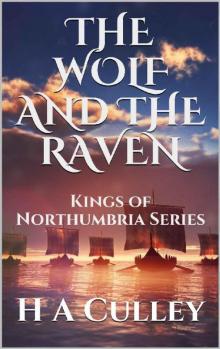 The Wolf and the Raven
The Wolf and the Raven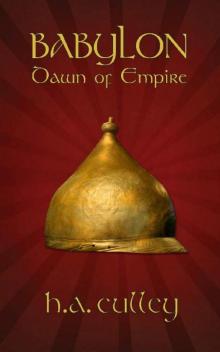 Dawn of Empire
Dawn of Empire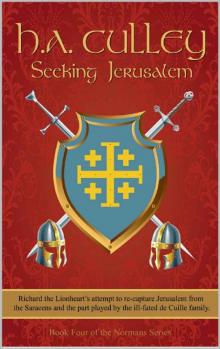 Seeking Jerusalem
Seeking Jerusalem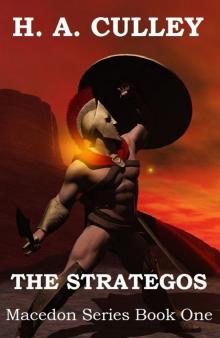 The Strategos
The Strategos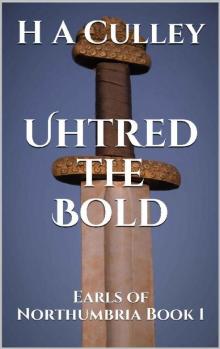 Uhtred the Bold
Uhtred the Bold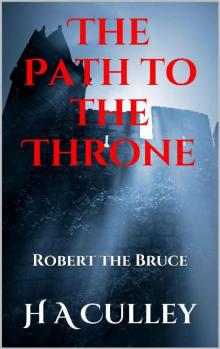 The Path to the Throne
The Path to the Throne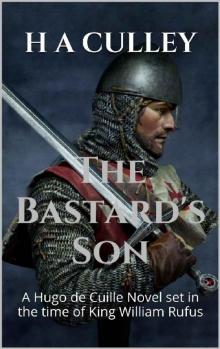 The Bastard's Son
The Bastard's Son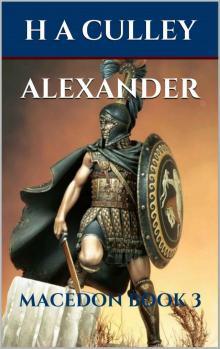 Alexander
Alexander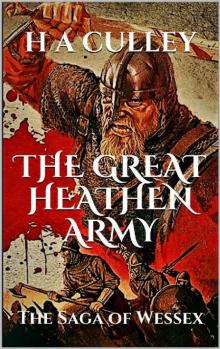 The Great Heathen Army
The Great Heathen Army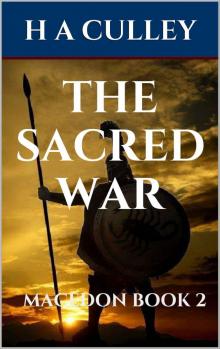 The Sacred War
The Sacred War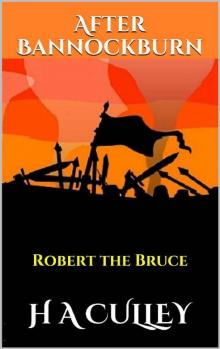 After Bannockburn
After Bannockburn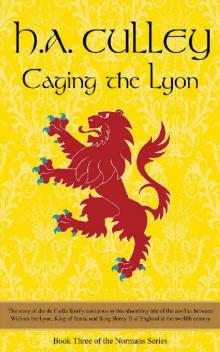 Caging the Lyon
Caging the Lyon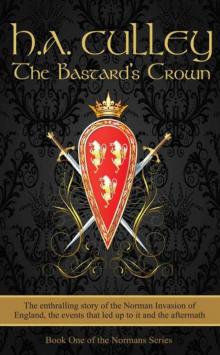 The Bastard's Crown
The Bastard's Crown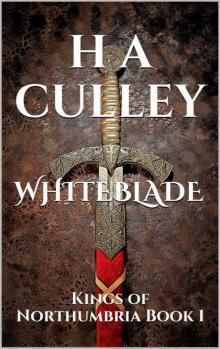 WHITEBLADE
WHITEBLADE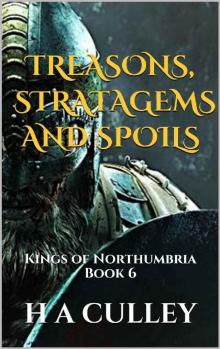 TREASONS, STRATAGEMS AND SPOILS: Kings of Northumbria Book 6
TREASONS, STRATAGEMS AND SPOILS: Kings of Northumbria Book 6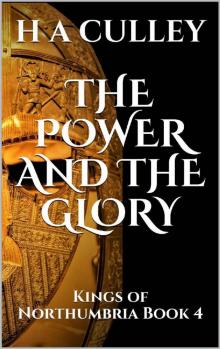 THE POWER AND THE GLORY: Kings of Northumbria Book 4
THE POWER AND THE GLORY: Kings of Northumbria Book 4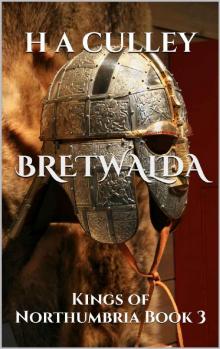 BRETWALDA: Kings of Northumbria Book 3
BRETWALDA: Kings of Northumbria Book 3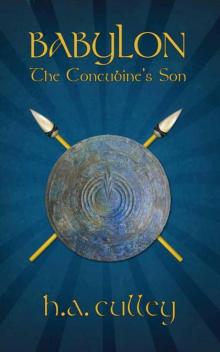 The Concubine's Son
The Concubine's Son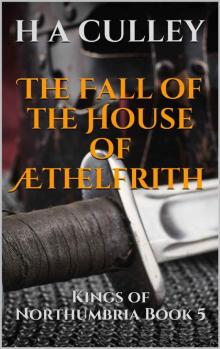 The Fall of the House of Æthelfrith: Kings of Northumbria Book 5
The Fall of the House of Æthelfrith: Kings of Northumbria Book 5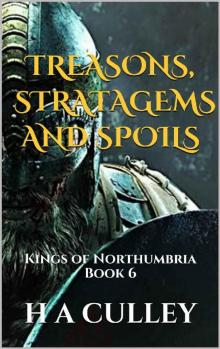 TREASONS, STRATAGEMS AND SPOILS
TREASONS, STRATAGEMS AND SPOILS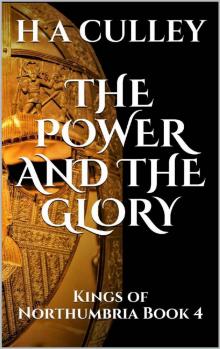 THE POWER AND THE GLORY
THE POWER AND THE GLORY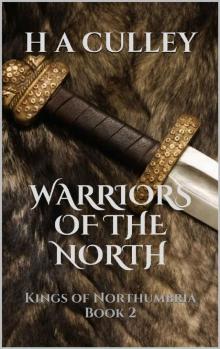 WARRIORS OF THE NORTH
WARRIORS OF THE NORTH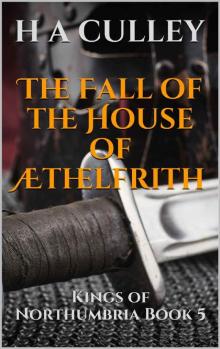 The Fall of the House of Æthelfrith
The Fall of the House of Æthelfrith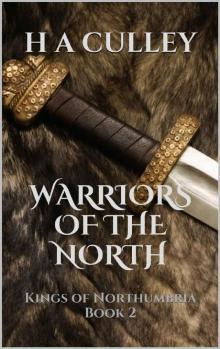 WARRIORS OF THE NORTH: Kings of Northumbria Book 2
WARRIORS OF THE NORTH: Kings of Northumbria Book 2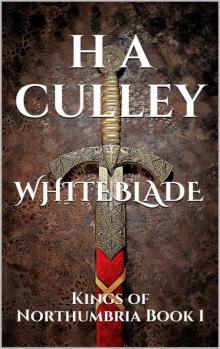 WHITEBLADE: Kings of Northumbria Book 1
WHITEBLADE: Kings of Northumbria Book 1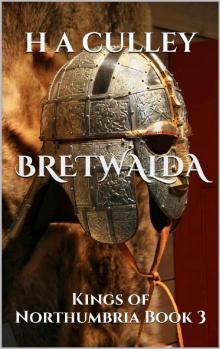 BRETWALDA
BRETWALDA